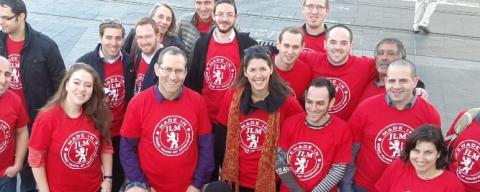Jerusalem’s startup ecosystem takes off
The Israeli branch of Women Who Code, a global group promoting female software developers, meets weekly not only at Google Campus Tel Aviv but also at the Open Hub in Jerusalem. A new group called She Codes (“It’s not your mother’s C++ anymore”) is based in Jerusalem too.
The Google Developers Group (GDG JLM) of 184 gamers has been meeting weekly since March at the Hansen Center for Design and Technology “to create and advance the development and design ecosystem in the city.”
Other specialty groups popping up across town include the Haredi Hi-Tech Forum for ultra-Orthodox men and women, the Moshava Startup Breakfast Club in the German Colony area, and a local branch of ImaKadima for career-minded young Israeli moms.
New network culture
Business development consultant Joe Van Zwaren, who helped establish the Jerusalem Business Networking Forum (JBNF) in 2007, looks at all the networking and business groups forming in Jerusalem with great satisfaction. “Jerusalem is a city where people did not have a network culture, and suddenly things are happening,” he tells ISRAEL21c. “In 2007, people had to go from group to group to make deals and find jobs and investment, because each group specialized in a different population.”
JNext signals that the municipality has at last “recognized this incredible mechanism for generating business,” van Zwaren says. “The JDA has a dynamic young team pushing resources into this.”
Thanks to JNext, he says, business-minded students at Jerusalem’s schools of higher education “have suddenly discovered there are forums to make connections with people they ordinarily wouldn’t know, especially in biotech. The JDA is even starting an internship program for new PhDs and post-docs to get into Jerusalem biomed industry.”
On August 14, JBNF held its inaugural “Doing Business in Jerusalem” conference, at which it bestowed awards on outstanding Jerusalem-based startups Brainsway, Glide, Revelator, Freightos and Abe’s Market. Though he believes much is yet to be done, van Zwaren is more optimistic than ever about Jerusalem’s startup scene, which he long felt was getting marginalized by the higher-profile scene in Tel Aviv. “I am now seeing an infrastructure to help people with zero funding get launched. It’s a whole new culture that’s been created out of nothing.”
Abigail Klein Leichman

